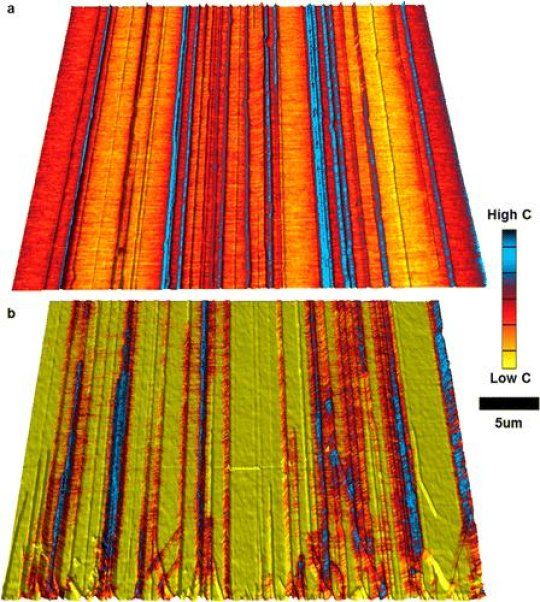Loving the progress around Quantum.
Today, a group of scientists — John A. Rogers, Eric Seabron, Scott MacLaren and Xu Xie from the University of Illinois at Urbana-Champaign; Slava V. Rotkin from Lehigh University; and, William L. Wilson from Harvard University — are reporting on the discovery of an important method for measuring the properties of nanotube materials using a microwave probe. Their findings have been published in ACS Nano in an article called: “Scanning Probe Microwave Reflectivity of Aligned Single-Walled Carbon Nanotubes: Imaging of Electronic Structure and Quantum Behavior at the Nanoscale.”
The researchers studied single-walled carbon nanotubes. These are 1-dimensional, wire-like nanomaterials that have electronic properties that make them excellent candidates for next generation electronics technologies. In fact, the first prototype of a nanotube computer has already been built by researchers at Stanford University. The IBM T.J. Watson Research Center is currently developing nanotube transistors for commercial use.
For this study, scientists grew a series of parallel nanotube lines, similar to the way nanotubes will be used in computer chips. Each nanotube was about 1 nanometer wide — ten times smaller than expected for use in the next generation of electronics. To explore the material’s properties, they then used microwave impedance microscopy (MIM) to image individual nanotubes.









Comments are closed.